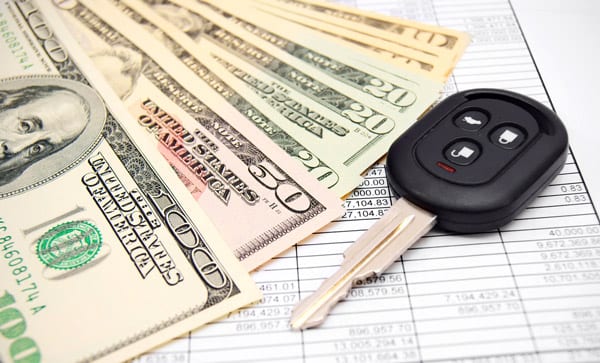New Legislation May Slow Record-Breaking Car Sales
Analysts predict record-setting sales for the automobile industry over the next year, though feuding between government leaders over whether discrimination exists in car financing could slow things down.
WardsAuto Dealer Magazine says that new car sales will reach a record-high 17.8 million in 2016. The previous record was 17.4 million cars sold in 2000. Car sales bottomed out at 10.4 million in 2009, but have risen every year since then.
“There was a lot of pent-up demand for cars after the recession in 2009,” said Steve Finlay, Senior Editor for WardsAuto Dealer Magazine. “A lot of people were out of the market for awhile and now they’ve got cars that average 11 years old and they’re ready for new ones.”
Looming over the optimistic sales predictions is legislation that just passed the House and is headed to Senate that directly affects car industry loans. The “Reforming CFPB Indirect Auto Financing Guidance Act” is meant to reign in the Consumer Financial Protection Bureau’s efforts to influence auto financing, which the CFPB claims can be discriminatory.
Dealer Markups A Concern
Currently, dealers add a percentage point to the interest rate on an auto loan (usually one percent) for acting as the middleman that puts buyers and lenders together. That is called a “dealer markup” or “dealer reserve” and accounts for 23 percent of dealer profits.
The CFPG issued regulatory guidance in 2013 that encouraged banks to do away with dealer markups. The CFPB contends that dealer markups open the door for discrimination against minorities. The CFPB wants dealers to accept a flat rate fee for bringing the buyers and lenders together during a car purchase.
The House rejected that argument, overwhelmingly passing the Auto Financing Guidance Act 332-96 on Nov. 18. The bill’s limits on the CFPB include:
CFPB must provide a public notice and comment period before issuing an auto financing guidance;
- CFPB must make available to the public all studies, data, methodologies, analyses and other information relied on to prepare such guidance;
- CFPB must consult with the Department of Justice, Federal Trade Commission and the Federal Reserve System and conduct a study of costs and impacts of an auto guidance to consumers, women-owned and minority-owned and small businesses.
CFPB Favors Flat Fees
Car dealers gave strong support to the legislation. They say they use the discretion available with dealer markups to discount the final price to the buyer. They say the CFPB is overstepping its boundaries and that flat fees would eliminate a dealer’s flexibility to discount loans.
That, some people say, is where the problem begins.
Critics claim the “markups” for minorities are far higher than for whites, meaning that minorities pay a far higher price for their loans. The CFPB cited research that it says proves that minorities pay higher markups, but the research data and methods were questioned.
The Senate is expected to pass the legislation and send it the White House, where President Obama already has said he would veto it.
The White house issued a statement saying: “The Administration strongly opposes passage of H.R. 1737 because it would revoke important guidance designed to prevent discriminatory pricing of auto loans. The Administration is committed to ensuring that all Americans receive fair pricing on auto loans.”
Analysts believe there is enough support in both Houses of Congress to override Obama’s veto, but there is no way to tell if it will have a negative impact on car sales.
Millennials Buying Cars
The country’s economic recovery has been more evident in the auto sales industry than just about any other business sector. According to WardsAuto, sales have increased by more than a million cars every year but one over the last seven years.
Finlay said the combination of rebounding home values and competitive interest rates on auto loans from banks and credit unions have helped the auto industry rebound nicely.
“Businesses are competing for auto loans and that’s making for some very attractive rates,” he said. “Plus, the Millennial generation is starting to flex its muscles on the economy. A lot of people thought that generation wasn’t interested in cars, but now that they have some financial standing, they’re starting to buy more cars.”
Sources:
- Burke, M. (2015, November 17) White House opposes auto financing bill. Retrieved from http://www.detroitnews.com/story/business/autos/2015/11/17/auto-financing/75938322/
- Pyke, A. (2015, November 17) Lawmakers Line Up To Make It Easier To Discriminate Against You When You Buy A Car. Retrieved from http://thinkprogress.org/economy/2015/11/17/3723255/cfpb-car-loans-discrimination/
- Welch, P. (2015, November 16) H.R. 1737 will create transparency at the CFPB and maintain affordable auto credit. Retrieved from http://thehill.com/opinion/op-ed/260357-hr-1737-will-create-transparency-at-the-cfpb-and-maintain-affordable-auto
- You will need Adobe Reader to view the PDF Download Adobe Reader


















